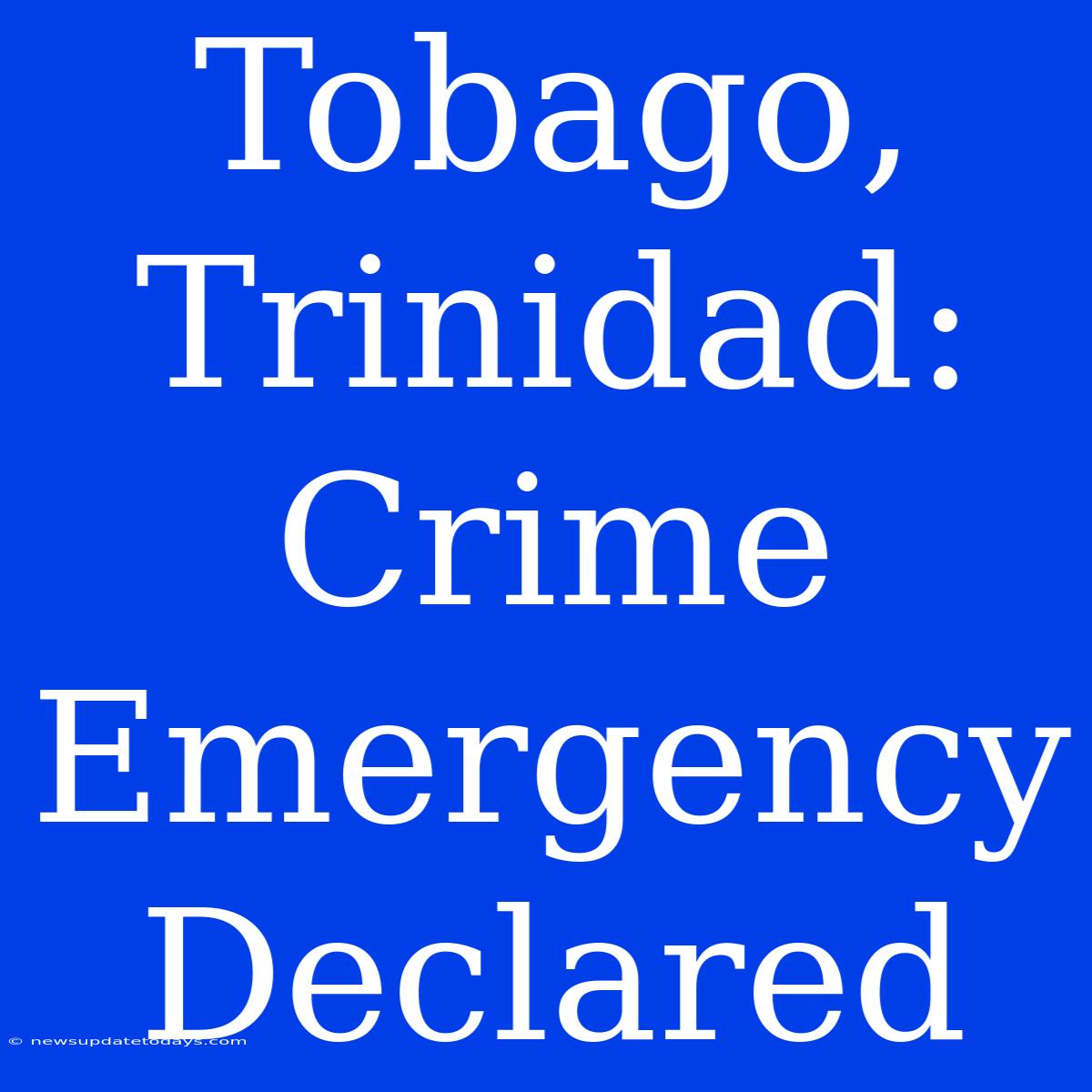Tobago, Trinidad: Crime Emergency Declared – A Deep Dive into the Crisis
Tobago, the smaller of the two islands that make up the twin-island republic of Trinidad and Tobago, has declared a state of emergency in response to a surge in violent crime. This unprecedented move underscores the gravity of the situation and highlights the urgent need for comprehensive solutions. This article delves into the specifics of the crisis, explores its potential causes, and examines the implications for residents and tourists alike.
The Escalating Crime Situation in Tobago
The declaration of a state of emergency wasn't a knee-jerk reaction. It followed a significant spike in homicides, robberies, and other violent crimes, shattering the island's previously peaceful reputation. While specific numbers fluctuate depending on the source, reports consistently point to a dramatic increase in criminal activity, leaving the community feeling vulnerable and insecure. This represents a stark shift from Tobago's traditionally lower crime rates compared to its larger sister island, Trinidad.
Understanding the Roots of the Problem
Pinpointing the exact causes of this sudden surge in crime is complex. However, several contributing factors are being discussed:
-
Increased Gang Activity: Some experts suggest that the spillover effect from gang violence in Trinidad is impacting Tobago. This could involve established gangs expanding their operations or new groups emerging on the island.
-
Economic Hardship: Economic challenges, including unemployment and poverty, can create an environment where crime becomes a perceived solution to financial struggles. This is a particularly relevant factor given the impact of the global pandemic and economic downturns.
-
Lack of Resources: Some argue that insufficient law enforcement resources and outdated crime-fighting strategies have hampered the island’s ability to effectively address the rising crime rates.
-
Drug Trafficking: The unfortunate reality is that drug trafficking often fuels violence and instability, and Tobago may be increasingly becoming a transit point or a market for illegal narcotics.
The State of Emergency: Implications and Measures
The declaration of a state of emergency grants the authorities expanded powers, including the ability to conduct searches, detain suspects, and impose curfews. These measures aim to restore order and disrupt criminal activities. However, the effectiveness of such measures in the long term remains to be seen. Concerns regarding potential human rights violations and the impact on civil liberties also need careful consideration and monitoring.
The government's response must go beyond temporary measures. Long-term solutions are crucial, and these should include:
-
Increased Police Presence and Resources: A sustained increase in police presence, coupled with improved training and better equipment, is vital for deterring crime and apprehending offenders.
-
Improved Community Policing: Strengthening community engagement and fostering trust between law enforcement and residents is critical for effective crime prevention.
-
Economic Development Initiatives: Addressing the root causes of crime through job creation, investment in education, and social programs is essential for sustainable solutions.
-
Regional Cooperation: Collaboration with Trinidad and other regional partners to combat transnational crime, such as drug trafficking, is necessary.
Impact on Tourism and the Future of Tobago
The state of emergency inevitably impacts Tobago's tourism sector, a cornerstone of the island's economy. Negative media coverage can deter potential visitors, and security concerns might cause existing tourists to reconsider their stay. The long-term consequences for tourism depend on the government's ability to effectively address the crime situation and reassure both residents and tourists about their safety. The success of the state of emergency and the implementation of long-term strategies will ultimately determine the future of Tobago and its ability to maintain its reputation as a peaceful and attractive destination.
This evolving situation requires constant monitoring and updates. Reliable news sources and official government announcements should be consulted for the latest information and developments.

